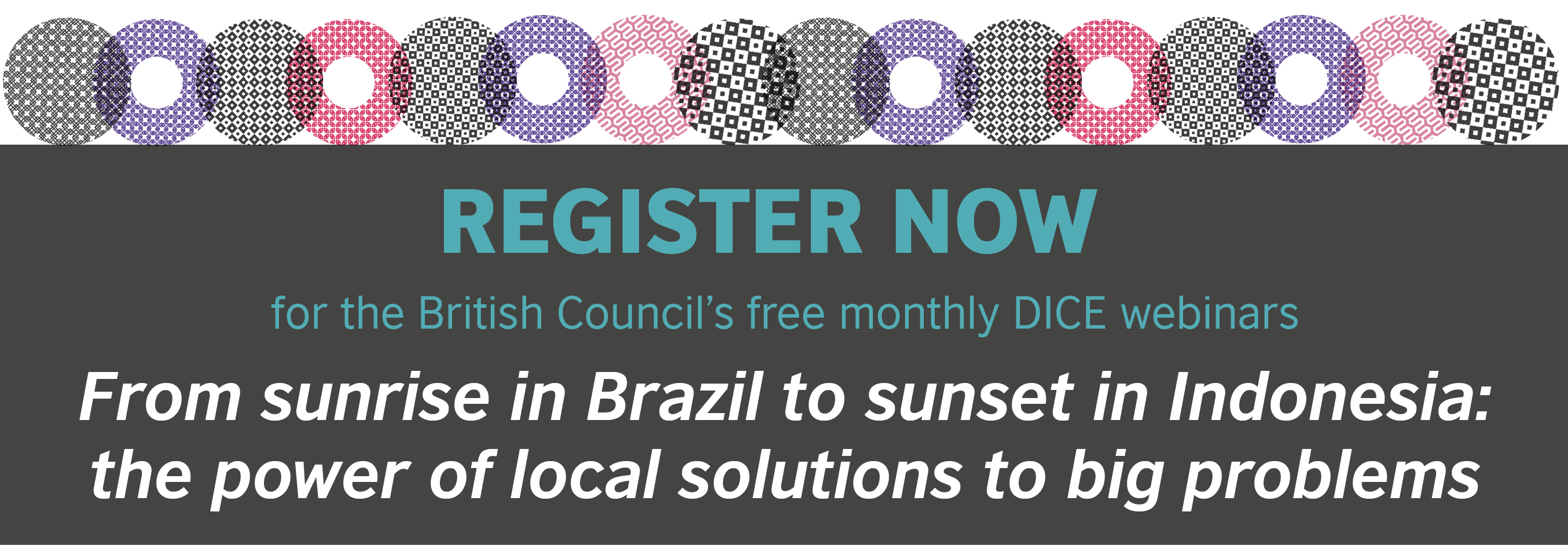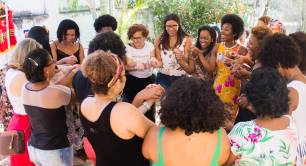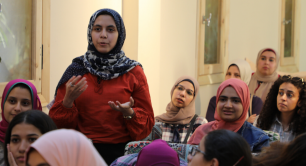Diversifying Brazil's Silicon Valley: innovation hubs boost start-ups in local communities
Recife is the tech hub of Brazil, but the entrepreneurs working there are too often affluent white men. A recent project supports more women and Afro-Brazilians to test out new business ideas with promising results.

Starting up a new business with both a social and creative focus is hard work, but also deeply exciting. In Brazil, the challenge attracts a large number of young, well-educated and relatively affluent white males, fresh out of university. Statistically speaking, female, black and mixed-race people from poor communities are less well represented in the start-up world. Yet there is a powerful argument that says new social enterprises are most effective precisely in these more marginalised areas and in poorer communities.
What has to be done to ensure that a higher proportion of social and creative enterprises are founded and led by members of traditionally excluded communities?
It is a question that was posed by Marcos Primo, a coordinator who works for Porto Digital, a technology and business park in Recife, capital of the north east Brazilian state of Pernambuco, and often known as Brazil’s Silicon Valley. Porto Digital is one of Brazil’s top technology and innovation centres, attracting start-ups involved in software, videogames, animation, music, photography, design and smart cities. It currently acts as home to 316 companies employing 9,000 people, and it has ambitious plans to double in size within the next five years. With support from the British Council DICE fund, Marcos has been running Ressignifica, a multi-phase programme to boost social entrepreneurship in local favelas (slum areas of Brazil).
Four local communities with high unemployment rates were identified as targets for Ressignifica. “We worked with local community organisations and stakeholders to identify and recruit people for the programmes. In one community we couldn’t find any local organisations at all and we ended up recruiting people one-by-one,” says Marcos. Sixty percent of the places on the programme were reserved for women: the recruitment process also sought to attract those of Afro-Brazilian heritage, among other under-represented groups.
In a first phase, UK-based Signifier, a consultancy that focuses on diversity in creative organisations, conducted one-week workshops in the communities, discussing issues such as self-esteem, empowerment and privilege. In a second phase, Porto Digital created business and economy-related workshops for the communities. In a third phase, participants with their business ideas benefited from a 10-week programme of training and workshops at Porto Digital called Mind the Bizz, which sought to develop and strengthen their business proposals.
- READ MORE: Our Young Storymaker Yael Berman talks to some Mind the Bizz participants in Recife
Finally, in an additional phase (not originally designed at the start) a group of 12 selected start-ups are receiving further support and incubation to turn their ideas into actionable business plans.
Ben Ryan, Signifier’s managing director, explains that his organisation needed to adjust its approach because, for the first time, it was working in an environment where its workshops, which require a lot of interactivity, empathy and feeling, could not be delivered in English.
There was therefore a danger that the consultants might fly in, deliver a dry, translated presentation, and fly out, a process “that doesn’t help towards sustainability and perhaps is almost a bit colonial”, he says.
Getting the language right
The solution was to train the community intermediaries so that they could deliver the workshops themselves in Portuguese. “The intermediaries have the existing and ongoing relationship with their communities; they also have the language, the tone, and the humour to deliver the workshops effectively,” Ben says, adding that the result was a “phenomenal success”. “At the end of the sessions, people were crying, laughing, hugging, singing and dancing,” he says. “I think we achieved the sense of empowerment and social and economic equality that we were seeking.”
Marcos says the Signifier workshops raised the bar and created a real sense of momentum, which faded a little due to a pause before the next phase of the programme could start. A learning point from the project is that many of the participants have a rather short-term outlook, and that some expectation management is required. The would-be social entrepreneurs have limited time for launching their business ventures and can get diverted because of the unrelenting demands of day-to-day life such as earning a living or looking after children.
Nevertheless, Marcos marvels at the creativity of the business ideas that have come up.
One start-up proposes recycling cooking oils, widely used and discarded as waste by local restaurants, homes and businesses. The proposal is for the discarded oils to be recycled as soap. Companies and individuals who collect the waste oil will be repaid in kind, receiving liquid soap.
People were crying, laughing, hugging, singing and dancing. I think we achieved the sense of empowerment and social and economic equality that we were seeking
Among the other proposals are plans to create video games which more accurately reflect the culture of Brazil’s north-east; an app to encourage school learning; a company producing traditional drums and percussion instruments; a photography collective; and a start-up that organises social events and concerts.
Marcos says: “My dream is that in two years’ time there will be community-based start-ups from the DICE programme working within the Porto Digital technology park, proving not only that they can be sustainable businesses that create employment, but also acting as role models for what can be achieved.”
He acknowledges that outsiders can sometimes be arrogant, imagining that they know the solution to problems in communities that they don’t fully understand. “In my mind it is a learning process and the key point is empowering the communities to find their own solutions. The intermediaries and organisations like Porto Digital and Signifier are just facilitators.”
He adds that communities in Recife, in Africa, and in Central America may have different types of issues, but the model of empowering and supporting them to address these issues is replicable around the world. Ben agrees, saying that for him “joining the dots” on the project shows that all the participants have undergone a process of “reframing mindsets” and decolonising space to enable a more collaborative approach.
The British Council and the DICE Collaborators (including the organisations featured in this article) invite you to join them in a series of conversations about reducing inequalities, collaborating across borders and oceans, and operating impact-focused enterprises at a time of profound change. These free, monthly live events are co-hosted by impact-focused organisations in Brazil, Egypt, Indonesia, Pakistan and South Africa and their partners in the UK, and draw on their experience of collaborating across borders to address challenges such as youth unemployment, environmental catastrophe, disability rights, and gender inequality in local communities. Find out more and register here.
The DICE Series tells the stories of collaborations which brought together enterprise development experts from the UK with specialists working in five emerging economies – Brazil, Egypt, Indonesia, Pakistan and South Africa – during 2019-20 with the aim of addressing entrenched issues of economic and social exclusion. Read more about the British Council’s DICE programme here.





